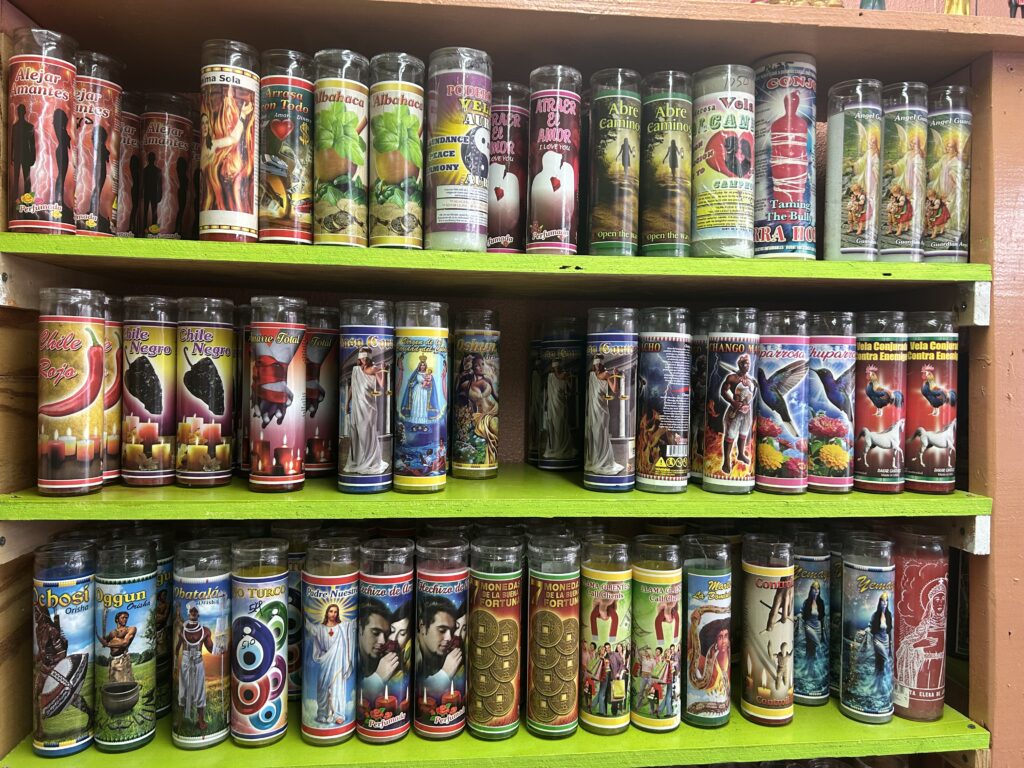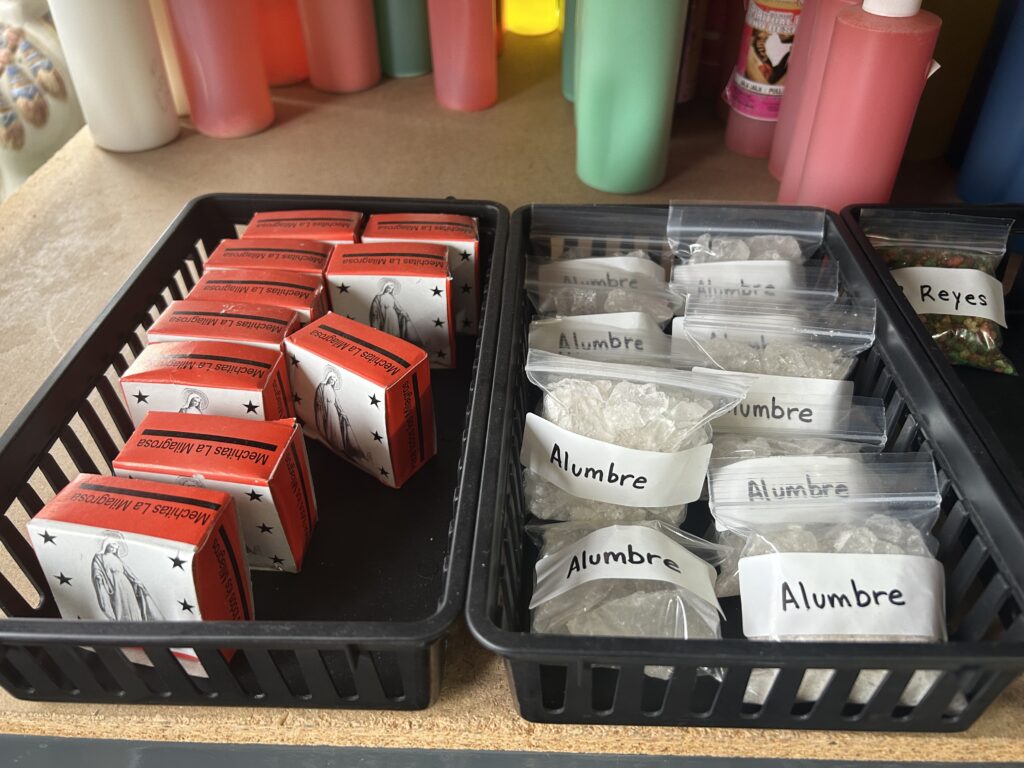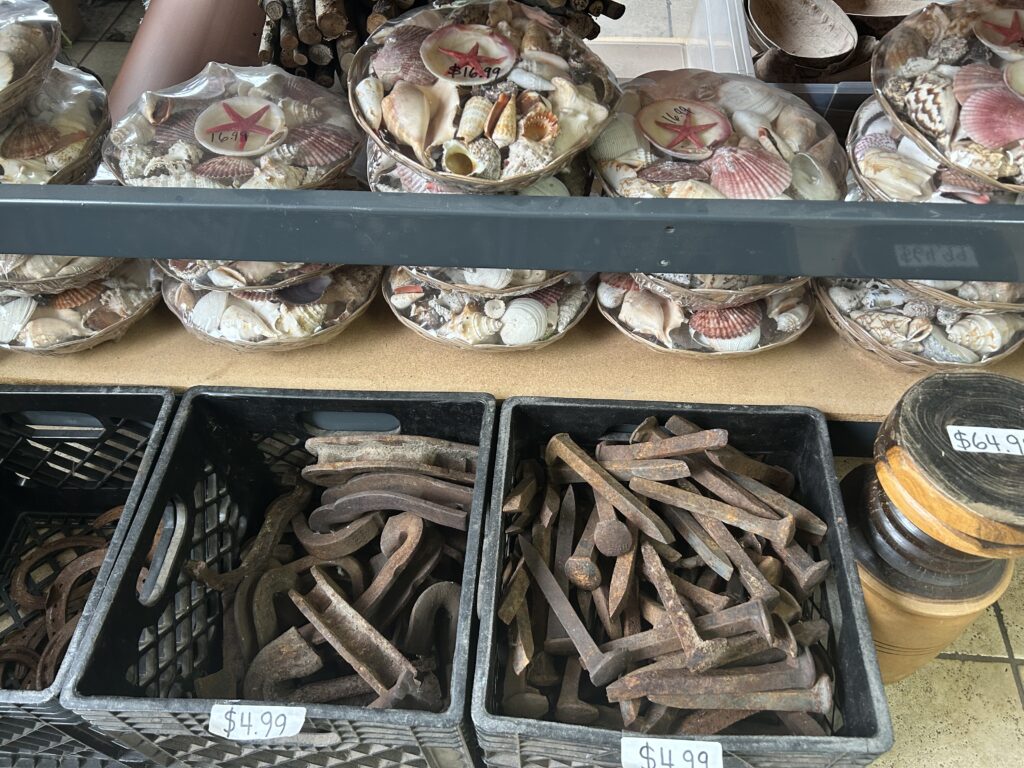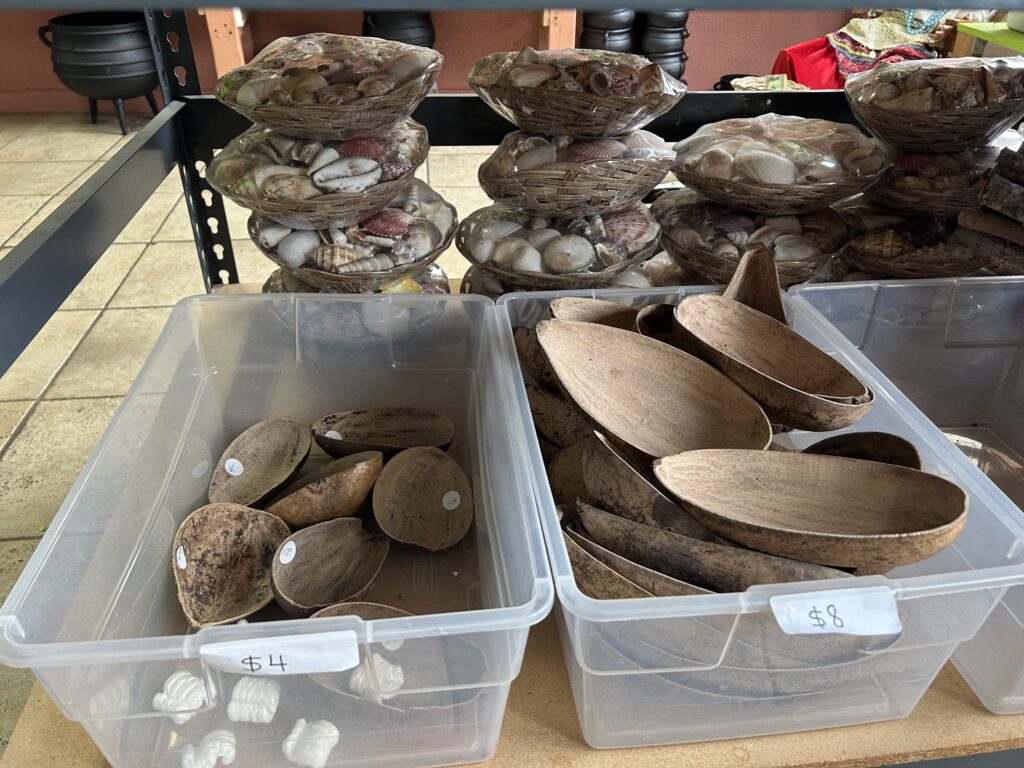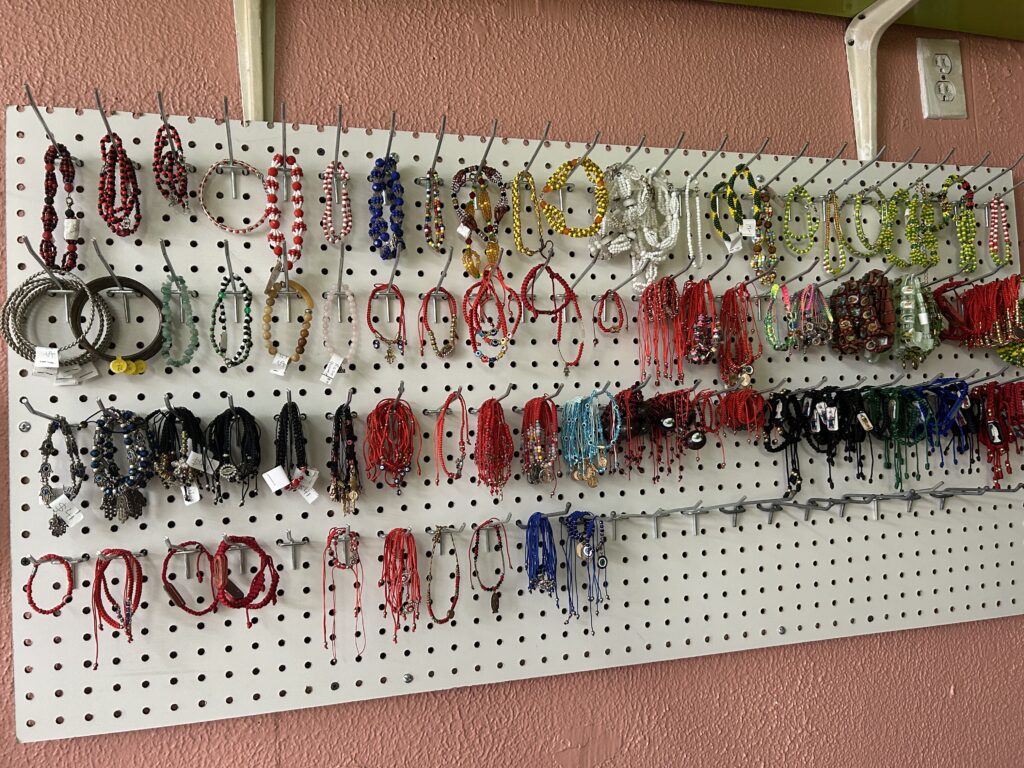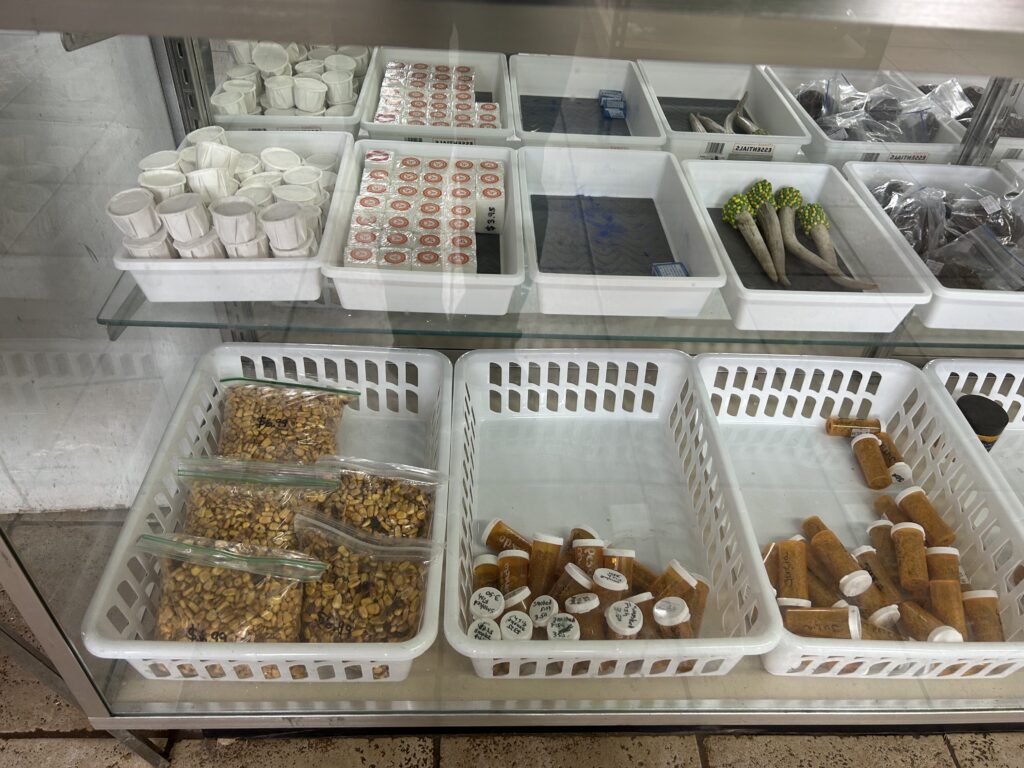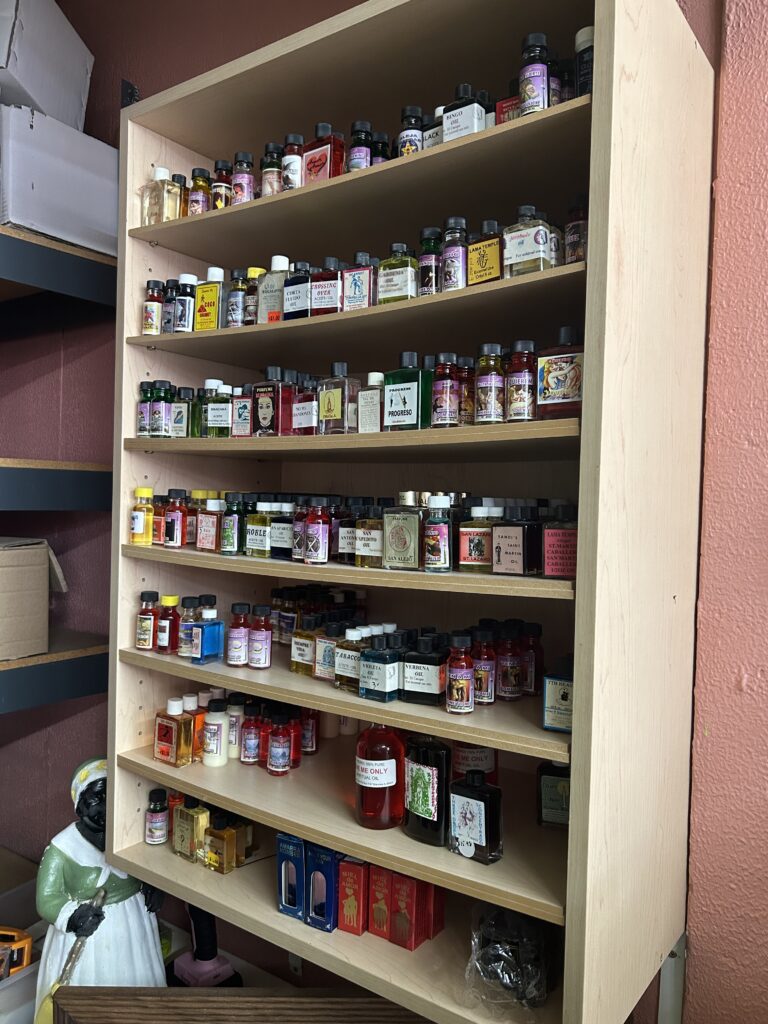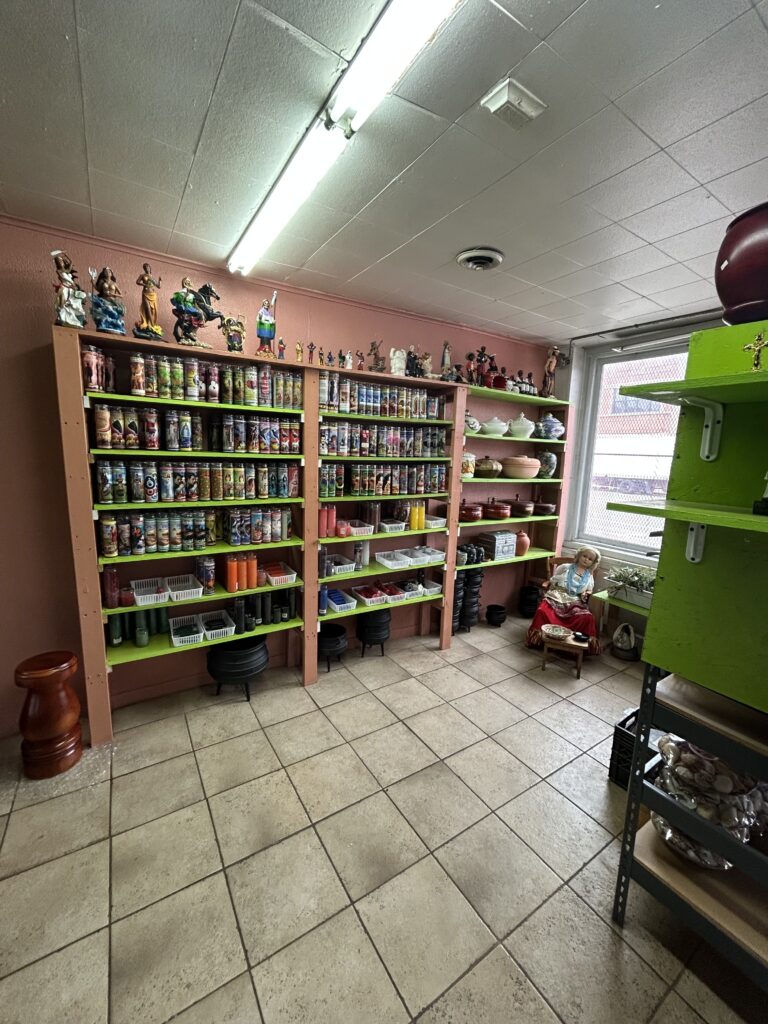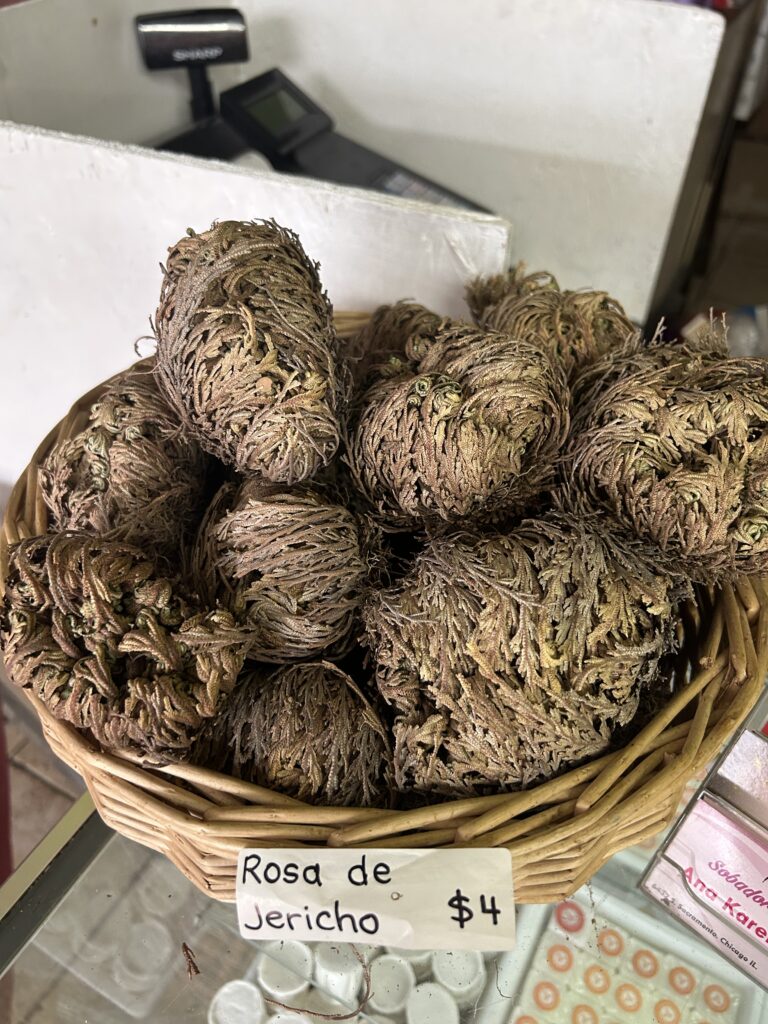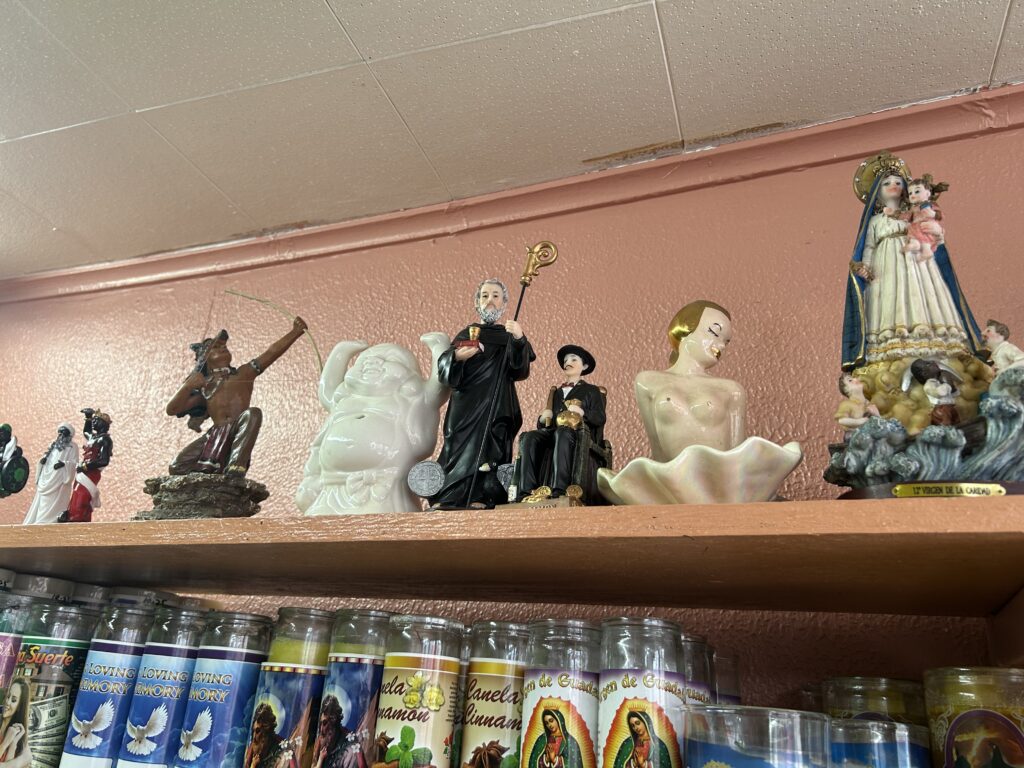2915 W 63rd St, Chicago, IL 60629
(The quotes and interview have been translated from Spanish to English)
Standing tall since 2001, the shelves at Botánica Chango Universal are lined with colorful candles, seashells, bottles of oils, perfumes, and whatever prayer card you may need. At the center of it all, santera Alyce shares,“this place is like a church, but for many different beliefs.”

She jokes the botánica serves almost as a kind of spiritual grocery store for the community, where all kinds of people come in looking for all kinds of things related to love, protection, good luck, advice, a cure, and more.
Sometimes people come in knowing exactly what they want, but other times, they walk in unsure and a little nervous.“Eighty-five, ninety percent of people who come already know,” she says. “But some, come in and ask, ‘What’s this for?’ Or ‘Will this work?”
“I let them look,” she says. “If you need something, let me know.”
This openness and care is what earns her trust, even from those who come in skeptical or in fear, but this is also what makes her a target. “I’m supposedly the witch,” she shares.
Despite the decades she has spent helping others, and overall just being a member of her community, some people still look at her with suspicion,“they don’t even greet me when they see me. I don’t know why… This is like a food store, but because people don’t understand it, they’re afraid.”
Regardless, word of the mysterious, cure-all botánica spreads. Someone lights a candle and sees results—so they return, this time with a friend, then another and another. This is how the knowledge of botánicas and their practices spread.
Over time, a botánica becomes more than just a store, welcoming not only those already following these traditions, but also for newcomers. “People are the ones who keep these traditions alive,” Alyce says. People come, they ask, they share, and they remember.
These practices are not rigid, but instead are adaptable, inclusive, and often shared across cultures. “Like food,” she says. “One thing works for you, maybe not for someone else. But there’s something for everyone.”
Today, more people are open, there’s less hiding, less shame. For Alyce, this evolution is beautiful—and it reflects how spirituality, healing, and identity are becoming more accepted through people’s personal and lived experiences.
While some might still call her a witch, Alyce knows who she is and what she offers, “It’s like a food store,” she says. “You just have to know what you’re hungry for.”
